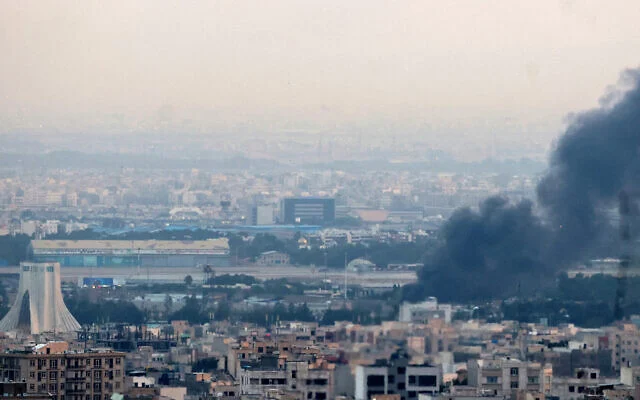By Atoyebi Nike
Tensions between Israel and Iran escalated dramatically on Thursday as Israel launched airstrikes on key Iranian nuclear sites, while Iranian missiles struck several Israeli cities, including a hospital in Beersheba.
Israeli Prime Minister Benjamin Netanyahu said the attacks were part of an effort to eliminate Iran’s nuclear threat, vowing that Tehran would “pay the full price.” Defense Minister Israel Katz added that Israel had intensified strikes to destabilize Iran’s leadership.
Israeli forces targeted the Khondab nuclear reactor near Arak and a site near Natanz, believed to house components for nuclear weapons. Iran confirmed the attacks but reported no casualties, saying the facilities had been evacuated.
In retaliation, Iran fired multiple missiles at Israel, hitting areas in Tel Aviv and the south, including the Soroka Medical Center in Beersheba. The Revolutionary Guard claimed it was targeting military and intelligence facilities near the hospital.
Israeli emergency services confirmed at least five people were seriously injured, with dozens more wounded and people trapped in collapsed buildings. Damage was extensive in parts of Tel Aviv and its commercial district, Ramat Gan.
The conflict has so far killed hundreds in Iran and at least two dozen civilians in Israel. It marks the most severe confrontation between the two nations and has raised fears of a broader Middle East war.
Oil prices spiked on news of the Israeli airstrikes amid concerns over global supply disruptions.
Meanwhile, former U.S. President Donald Trump, speaking outside the White House, declined to confirm whether the U.S. would join Israel’s campaign. “I may do it. I may not. Nobody knows,” he said.
Trump revealed that Iranian officials sought talks in Washington but hinted that it might be “too late.” Negotiations planned for last Sunday between the U.S. and Iran were cancelled due to the ongoing strikes.
Germany, France, and Britain are now set to meet with Iran’s Foreign Minister in Geneva to revive stalled nuclear talks.
While Trump has floated both military action and a diplomatic resolution, internal divisions within his political base have emerged over the possibility of deeper U.S. involvement in another Middle Eastern war.
